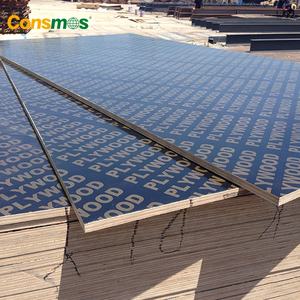



















Bridge plywood is a specialized material designed to offer robust solutions for construction needs, particularly in bridge building. This engineered wood product is known for its exceptional strength and flexibility, making it an ideal choice for projects requiring durable and resilient building materials. The versatility of plywood bridge construction materials allows for their application in various structural forms, from temporary walkways to permanent roadway platforms.
There are several types of bridge plywood, each tailored for specific load-bearing requirements and environmental conditions. From lightweight varieties for pedestrian bridges to heavier grades capable of supporting vehicular traffic, the application of bridge plywood is extensive. It is not only used in the construction of new bridges but also in the repair and reinforcement of existing structures, ensuring longevity and safety.
Plywood bridge materials are crafted from multiple layers of wood veneer, bonded under high pressure and heat to create a single, solid panel. This process imbues the plywood with increased stability and a higher resistance to impact, allowing it to accommodate overloads to a certain degree. The layers are typically made from durable wood species, and when treated with preservatives, the resulting product exhibits superior resistance to chemicals and corrosion, enhancing its durability.
The use of bridge plywood in construction offers numerous advantages. Its strength-to-weight ratio is particularly noteworthy, providing significant stiffness and stability without the heft of solid wood. This makes transportation and handling much easier. Additionally, the material's adaptability means it can be customized to meet the specific requirements of a project, whether that involves cutting it to size or treating it for enhanced weather resistance. Its environmental impact is also considered favorable, as plywood production generally involves less waste compared to other building materials.
In today's eco-conscious market, plywood bridge materials stand out for their environmental benefits. The production process maximizes the use of the log, reducing waste. Furthermore, the wood used for these plywood panels is often sourced from sustainably managed forests, contributing to responsible forestry practices. This aspect of bridge plywood is particularly appealing to projects aiming for green building certifications or those with an environmental focus.
Selecting the appropriate bridge plywood for a project is crucial. Factors such as load requirements, exposure to elements, and the desired lifespan of the structure play a pivotal role in determining the right type of plywood. While Alibaba.com does not endorse specific products, the platform facilitates the connection between buyers and a diverse range of global suppliers, offering a multitude of plywood options suitable for bridge construction and other demanding applications.